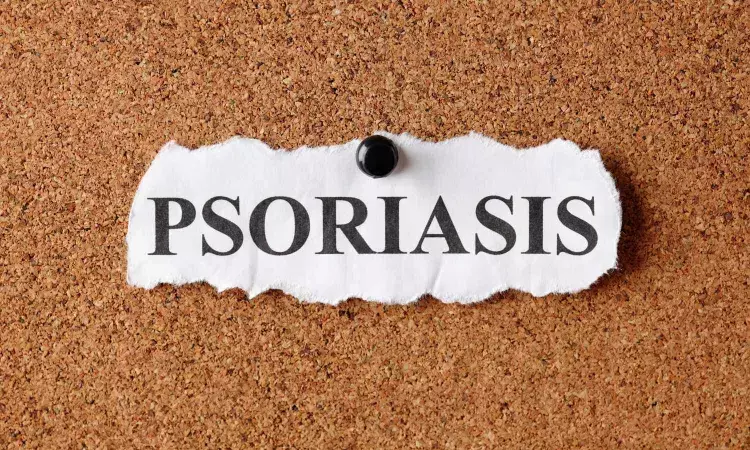- Home
- Medical news & Guidelines
- Anesthesiology
- Cardiology and CTVS
- Critical Care
- Dentistry
- Dermatology
- Diabetes and Endocrinology
- ENT
- Gastroenterology
- Medicine
- Nephrology
- Neurology
- Obstretics-Gynaecology
- Oncology
- Ophthalmology
- Orthopaedics
- Pediatrics-Neonatology
- Psychiatry
- Pulmonology
- Radiology
- Surgery
- Urology
- Laboratory Medicine
- Diet
- Nursing
- Paramedical
- Physiotherapy
- Health news
- Fact Check
- Bone Health Fact Check
- Brain Health Fact Check
- Cancer Related Fact Check
- Child Care Fact Check
- Dental and oral health fact check
- Diabetes and metabolic health fact check
- Diet and Nutrition Fact Check
- Eye and ENT Care Fact Check
- Fitness fact check
- Gut health fact check
- Heart health fact check
- Kidney health fact check
- Medical education fact check
- Men's health fact check
- Respiratory fact check
- Skin and hair care fact check
- Vaccine and Immunization fact check
- Women's health fact check
- AYUSH
- State News
- Andaman and Nicobar Islands
- Andhra Pradesh
- Arunachal Pradesh
- Assam
- Bihar
- Chandigarh
- Chattisgarh
- Dadra and Nagar Haveli
- Daman and Diu
- Delhi
- Goa
- Gujarat
- Haryana
- Himachal Pradesh
- Jammu & Kashmir
- Jharkhand
- Karnataka
- Kerala
- Ladakh
- Lakshadweep
- Madhya Pradesh
- Maharashtra
- Manipur
- Meghalaya
- Mizoram
- Nagaland
- Odisha
- Puducherry
- Punjab
- Rajasthan
- Sikkim
- Tamil Nadu
- Telangana
- Tripura
- Uttar Pradesh
- Uttrakhand
- West Bengal
- Medical Education
- Industry
Menopause might have a negative effect on psoriasis progression, study finds

A new study published in the journal of Acta Dermato Venerologica showed that menopause might have neutral to negative impact on the progression of psoriasis.
Scaly plaques are the hallmark of psoriasis, a persistent immune-mediated skin disorder that is linked to several systemic comorbidities. Although the prevalence of psoriasis is considered to be between 2 and 3% worldwide. Due to the lack of clarity around the relationship between menopause and psoriasis, there is less data available to support clinician recommendations and patient expectations. A considerable percentage of people in the aging population fall into this category, since the average age of menopause is 51.3 years old.
Thereby, to learn more about the patient-reported effects of menopause and hormone replacement therapy on women who already had a psoriasis diagnosis, this study surveyed people in North America and East Asia. The findings offer patient-centered information that might aid medical professionals in advising psoriasis-affected women during the menopausal transition.
This findings offered patient-centered information that might aid medical professionals in advising psoriasis-affected women during the menopausal transition. The 35-question online survey included information on demographics, menopausal history, social history, and the severity and history of psoriasis.
The participants who have undergone menopause, which was defined as not having menstrual blood for at least a year, and have a certified diagnosis of psoriasis were included. Respondents were gathered from Hallym University Kangnam Sacred Heart Hospital in Seoul, South Korea, and outpatient dermatology clinics at the University of California, San Francisco.
The majority of women in the combined cohort stated that menopause either had no effect on their psoriasis (41.7%) or made it worse (33.1%). The majority of women (73.4%) in the combined cohort stated that menopause had no effect on how they treated their psoriasis.
The majority (62.1%) of the 29 women who were on HRT reported no change in their psoriasis. According to multivariate research, drinking alcohol helped prevent psoriasis from getting worse after menopause.
Overall, this study found that few women reported an improvement in their psoriasis during menopause, suggesting that menopause is likely to have a neutral to negative impact on psoriasis. However, the vast majority of women did not require a change in their psoriasis treatment strategy during menopause, even if some women had a worsening of their psoriasis.
Reference:
Chung, B. Y., Johnson, C., Park, J. S., Haran, K., Smith, P., Kranyak, A., Bhutani, T., & Liao, W. (2025). Patient-reported impact of menopause and hormone replacement therapy on psoriasis. Acta Dermato-Venereologica, 105, adv42843. https://doi.org/10.2340/actadv.v105.42843
Neuroscience Masters graduate
Jacinthlyn Sylvia, a Neuroscience Master's graduate from Chennai has worked extensively in deciphering the neurobiology of cognition and motor control in aging. She also has spread-out exposure to Neurosurgery from her Bachelor’s. She is currently involved in active Neuro-Oncology research. She is an upcoming neuroscientist with a fiery passion for writing. Her news cover at Medical Dialogues feature recent discoveries and updates from the healthcare and biomedical research fields. She can be reached at editorial@medicaldialogues.in
Dr Kamal Kant Kohli-MBBS, DTCD- a chest specialist with more than 30 years of practice and a flair for writing clinical articles, Dr Kamal Kant Kohli joined Medical Dialogues as a Chief Editor of Medical News. Besides writing articles, as an editor, he proofreads and verifies all the medical content published on Medical Dialogues including those coming from journals, studies,medical conferences,guidelines etc. Email: drkohli@medicaldialogues.in. Contact no. 011-43720751


